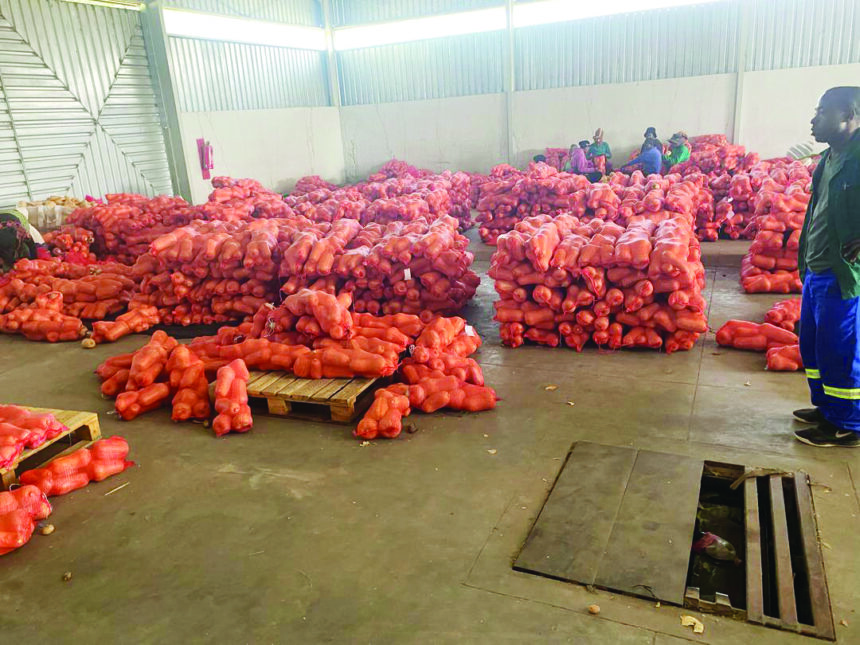Sawi Hausiku
RUNDU – The Sikondo Green Scheme in Kavango West is actively implementing its turnaround strategy to restore full production capacity.
Sikondo Green Scheme Farm Manager Maxwell Nghidinwa emphasised during a recent tour of the farm with officials from the Ministry of Agriculture, Water and Land Reform that they are working hard to revitalise the farm, despite negative publicity surrounding green schemes.
“Green schemes are important not only as developmental projects for the country, but as agencies that can employ Namibian people,” he noted.
As part of the turnaround strategy, Nghidinwa said the agriculture ministry has invested a significant amount of money in restoring some of the centre pivots that had fallen into disrepair.
Old tractors will be auctioned to generate funds for investment in new tractors.
“It’s a long journey, but we are proud that this is also an achievement,” he said.
The farm manager stated that with the support of the next administration, the green scheme aims to intensify the production of high-value crops such as potatoes and wheat, amongst others.
“We want to intensify these productions so that we can close our borders. The Namibia Agronomic Board (NAB), through the market scheme promotion policy, closes the borders when products are available locally. Thus, we want to work with the NAB, where they complement us when we have products,” he added.
This will compel local wholesalers and retailers to buy from them, and in return, the green scheme will provide the NAB with accurate data to assist in border closures.
Nghidinwa also addressed the green scheme policy, noting that the last revision took place in 2013.
“Covid came, technology is advancing, and nothing has happened in terms of revising the green scheme policy,” he stated.
He said the document serves as a guideline for the country on how green schemes should be managed.
“In the coming years, let’s be bold, ambitious and competitive about our green schemes. There are landlocked countries such as Botswana which are also importing from South Africa.
That doesn’t mean we can’t export to these countries,” Nghidinwa stated.
The green scheme policy is aimed at increasing food security by developing irrigation-based agricultural projects.
It aims to boost agricultural production, promote investment and create jobs through partnerships with the private sector and small-scale farmers.
–Nampa



